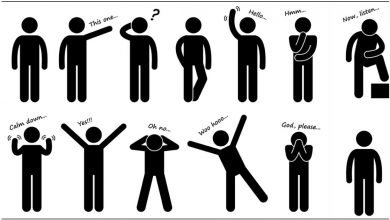Games People Play
Sharing within the group can be very powerful, but only when the sharing is genuine, from the heart and not the result of “game playing”. This article gives some insight on some games commonly played in different settings, as well as why we as humans come up with and play psychological games at all. It’s safe to say that game playing happens mostly subconsciously, so people who are doing it may not be aware (or entirely aware) that that’s what they’re doing. Personally, if I realized I was playing a game that would make me stop playing as I would realize I’m being inauthentic. Being asked the right questions is the key to coming to this realization, and dealing with the real unexpressed underlying feelings.

Why did I choose this tool? I’m so happy to have found this book, “Games People Play” by Dr. Eric Berne. Although it is expressed in a language that is a bit old fashioned and belongs to the field of psychotherapy, I still found it very applicable and relatable. Since reading it I have actually come across a few situations that I have been able to identify as “game playing”, and this has taught me how to deal with them. It has given me the foundation I need to know whether to confront, divert or just ignore. It has made me feel more confident in my communication skills, particularly being assertive and protecting myself from getting drawn into other people’s games.
How does this apply to being a trainer? If we recognize when someone is playing a game in a training setting, we will be able to steer the training back in a productive direction and one that leads to authentic sharing rather then game playing. If someone is a very good game player and is playing a destructive game, he can have the potential to actually sabotage the training. Just imagine if someone was playing the game of “now I’ve got you, son of a bitch” (described below) and was playing that with you as the trainer/leader of the group. Understanding what’s going on early enough can enable you to continue to lead the training in a productive direction rather than getting sucked into the game, or taking it personally when someone makes you their target. Of course this is a more extreme example, usually people who play these games will probably play it with other participants since it is less risky, and in this case it’s still relevant to understand this as a trainer and deal with the situation accordingly.
Main content:
Why do people play games?
According to Doctor Eric Berne, games are created to meet one or all of the following needs:
Time structure-hunger
We need to have something to do with our time, and it needs to make sense to us and feel worthwhile. Playing psychological games is one of the ways, although possibly not the best one, to fill our days with some kind of purpose and something we can win at.
Stimulus-hunger
Infants crave love and affection; it’s how they survive and if they get enough of it, they can thrive physically and psychologically. Interestingly, though this need doesn’t exactly go away when we grow up. What happens is that the love and affection we relied on before, we have to earn it, rather than having it guaranteed (like food).
Recognition-hunger
When others recognize and acknowledge us, our sense of identity is reinforced, as we know ourselves that we exist as individuals and we have an accepted place in the society. Recognition is related to both belonging and esteem, as we are accepted into groups and then we gain status within them.
Our “hunger” can be met in either positive or negative ways, or rather “high quality” or “low quality” ways. To take stimulus-hunger as an example, it can be met either through invigorating relationships, work pursuits and hobbies, or it could be met through taking drugs. The challenge of our lifetime, I believe, is to find the healthiest and most productive ways to meet all of our needs, and sometimes this is easier said then done.
The following games are a few of the games listed in “Games People Play” by Dr. Eric Berne, who also created the theory of transactional analysis (also known as “I’m ok – you’re ok). In fact, “Games People Play” builds on transactional analysis by dissecting the games played by people in all 3 ego states (child/parent/adult). To find out more about transactional analysis, check out the article “Understanding Power in Relationships” included in the intercultural competence.
There are many more games listed in the book, and even more games referred to, but not explicitly described. I’ve chosen a few of the games that I found most relevant and/or that I have actually seen being played in real life, unbeknownst to the players. I have played some of them myself, without even realizing.
The book also lists a few games that he describes as being “good”, in a way that they can be helpful to the one playing the game and also to the ones they are playing with. But for the sake of brevity I will stick to the games that are considered to be negative as I think becoming aware of them is more urgent. To read about all the games, check out the full book. To read about some games that could be played by trainers, check out the article “Games Trainers Play” also included with this competence.
Each of these games has an “antithesis”. The dictionary defines antithesis as:
a person or thing that is the direct opposite of someone or something else.
“love is the antithesis of selfishness”
Synonyms: (direct) opposite, converse, reverse, reversal, inverse, obverse;
The way antithesis is used in this case is basically how you can stop the game or make it fizzle out on its own. Like the regular games, these games also require more than one player. If you refuse to play, it may feel a bit awkward or uncomfortable at first, but it is only by not playing these games that you can have authentic communication and relationships on the long run.
Why Don’t You – Yes But
This game is one that I have experienced as a trainer. Sometimes, we offer what we think is a good suggestion for the struggles or challenges that people present to us. The problem arises when they are not actually looking for those things to be resolved, but instead they just want to “play the game”.
“The thesis “Why Don’t You – Yes But” occupies a special place in game analysis, because it was the original stimulus for the concept of games. It was the first game to be dissected out of its social context, and since it is the older subject of game analysis, it is one of the best understood. It is also the game most commonly played at parties and groups of all kinds, including psychotherapy groups. The following example will serve to illustrate its main characteristics:
White: “My husband always insists on doing our own repairs, and he never builds anything right.”
Black: “Why doesn’t he take a course in carpentry?”
White: “Yes, but he doesn’t have time.”
Blue: “Why don’t you buy him some good tools?”
White: “Yes, but he doesn’t know how to use them.”
Red: “Why don’t you have your building done by a carpenter?
White: “Yes, but that would cost too much.”
Brown” “Why don’t you just accept what he does the way he does it?”
White: “Yes, but the whole thing might fall down.”
Such an exchange is typically followed by a silence. It is eventually broken by Green, who may say something like, “That’s men for you, always trying to show how efficient they are.”
Harried
Although this game might refer to a housewife, the truth is that anyone can play this game. It’s a game that is played to show to others how busy and tired you are, and by staying extremely busy perhaps avoiding the discomfort of dealing with your own feelings, or even the feelings of others.
“This is a game played by the harried housewife. Her situation requires that she be proficient in ten or twelve different occupations; or, stated otherwise, that she fill gracefully ten or twelve different roles. From time to time semi-facetious lists of these occupations appear in the Sunday supplements: mistress, mother, nurse, housemaid, etc. Since these roles are usually conflicting and fatiguing, their imposition give rise in the course of years to the condition symbolically known as “Housewife’s Knee” (since the knee is used for rocking, scrubbing, lifting, driving and so forth), whose symptoms are succinctly summarized in the complaint: “I’m tired.”
Now, if the housewife is able to set her own pace and find enough satisfaction in loving her husband and children, she will not merely serve, but enjoy her twenty-five years, and see the youngest child off to college with a pang of loneliness. But, if on one hand she is driven by her inner Parent and called to account by the critical husband she has chosen for that purpose, and on the other unable to get sufficient satisfaction from loving her family, she may grow more and more unhappy. At first she may try to console herself with the advantage of “If It Weren’t For You” and “Blemish” (and indeed, any housewife may fall back on these when the going gets rough); but soon these fail to keep her going. Then she has to find another way out, and that is the game of “Harried.””
Gee you’re wonderful Professor (Mr. Murgatroyd)
This is a game that a participant could potentially play with a trainer, and even though it might feel good at first, it is quite a dangerous game to get embroiled in. In this game, there is a very high level of respect and admiration for someone usually because of their expertise, knowledge, charisma, position, etc. The person who is playing the game will then find a reason to suddenly stop respecting this person and be convinced that they are not who they portray themselves to be.
“Murgatroyd is wonderful. He is a celebrated poet, painter, philanthropist or scientist, and naïve young women frequently travel a long way in the hope of meeting him so that they can sit adoringly at his feet and romanticize his imperfections. A more sophisticated woman, who sets out deliberately to have an affair or a marriage with such a man, whom she sincerely admires and appreciates, may be fully aware of his weaknesses. She may even exploit them in order to get what she wants. With these two types of women, the game arises from the romanticizing or exploiting of the imperfections, while the innocence lies in their genuine respect for his accomplishments, which they are able to evaluate correctly.
In the dissembled form, Murgatroyd may or may not be wonderful, but he comes up against a woman incapable of appreciating him in the best sense, in any case; perhaps she is a high-class prostitute. She plays ‘Little Old Me’ and uses GYWM as sheer flattery to attain her own ends. Underneath she is either bewildered by him or laughing at him. But she does not care about him; what she wants are the perquisites that go with him. The simplest way for the patient to win GYWP is not to get better. If she is more malicious, she may take more positive steps to make the therapist look foolish.”
Now I’ve Got You, You Son of a Bitch
In this game, the person who is playing it is just waiting to catch you in the act of doing something “wrong”, in order to justify their position and perhaps paint you in a bad light so that they can feel better about themselves. Everyone can mess things up at some point, and that can make people angry. But, if someone is just waiting for you to make a mistake so that they can get angry, that is a very difficult situation to be in and to get out of.
Example:
“White needed some plumbing fixtures installed, and he reviewed the costs very carefully with the plumber before giving him a go-ahead. The price was set, and it was agreed that there would be no extras. When the plumber submitted his bill, he included a few dollars extra for an unexpected valve that had to be installed – about four dollars on a four-hundred-dollar job. White became infuriated, called the plumber on the phone and demanded an explanation. The plumber would not back down. White wrote him a long letter criticizing his integrity and ethics and refused to pay the bill until the extra charge was withdrawn. The plumber finally gave in.
It soon became obvious that both White and the plumber were playing games. In the course of their negotiations, they had recognized each other’s potentials. The plumber made his provocative move when he submitted his bill. Since White had the plumber’s word, the plumber was clearly in the wrong. White now felt justified in venting almost unlimited rage against him. Instead of merely negotiating in a dignified way that befitted the Adult standards he set for himself, perhaps with a little innocent annoyance, White took the opportunity to make extensive criticisms of the plumber’s whole way of living… White was exploiting his trivial but socially defensible objection (position) to vent the pent-up furies of many years of his cozening opponent, just as his mother might have done in a similar situation. He quickly recognized his underlying attitude (NIGYSOB) and realized how secretly delighted he has been at the plumber’s provocation. He then recalled that ever since early childhood he had looked for similar injustices, received them with delight and exploited them with the same vigor. In many of the cases he recounted, he has forgotten the actual provocation, but remembered in great detail the course of the ensuing battle. The plumber, apparently, was playing some variation of ‘Why Does This Always Happen to Me?’ (WAHM).”
Is everything a game then?
With this knowledge of games, we could end up thinking that everyone is playing games all the time and that there are no genuine and sincere interactions. But, although games are played more often then we would like to admit, it wouldn’t be correct to assume that there is always a game being played. From my observations, the difference between a game and a naturally occurring event/situation is:
Games are recurrent, naturally occurring events are not.
Taking the “harried” game as an example, if someone is extra harried and stressed because of changes or an increase in their responsibilities, etc., it’s natural that they would be “harried” for a while, until things quiet down and they get more accustomed and proficient in their situation. If however the supposed stress inducing situation is gone or has been present for long enough to allow the person to become accustomed to and proficient in it, and yet the “harriedness” continues and perhaps the person even introduces more things in their life that they can be “harried” about, it is probably safe to assume that they are playing a game of “harried” rather then just being in a stress inducing situation.
When you feel stuck in a certain role with someone, it’s probably because you are.
Taking the “now I’ve got you son-of-a-bitch” game, if you feel trapped by someone always making you out to be the “bad guy” or the “bad girl” in the situation, it’s probably because they are playing this game with you. It means that, no matter how hard you try to do something right, they will find something wrong with it, and it’s probably better for your own sanity to take yourself out of their game. If you see that you are the one playing the game, for instance if you’re a woman that’s always waiting for that moment when the guy will “mess things up”, then it’s probably better to look for when you started playing this game and why, and change this dynamic in order to have more authentic interactions.
Everyday life interactions are always fluctuating and changing, games aren’t.
If someone is always responding in the same way to things, or leading them in a certain direction, chances are they are playing a game. Natural everyday interactions are changing and fluctuating i.e. they are not static. Emotions in particular, change regularly, and that’s how it should be. If someone is always finding a reason to be angry, or finding a reason to be sad, or finding a reason to judge others, that’s the game that they are playing because it’s meeting a certain need.
Real satisfaction decreases the need for games.
People who experience the “real deal” on a regular basis, as in real intimacy, real fulfilment, real sense of accomplishment, will probably play games less then those who don’t. Although each of the above mentioned games have an antithesis (meaning: a person or thing that is the direct opposite of someone or something else), I would say that the antithesis to all games is when needs are met in genuine ways and games don’t need to be played in order to achieve satisfaction, even though that satisfaction is very low quality compared to the one that can be achieved with genuine relationships and accomplishments.
Reflection questions:
Which of the above-mentioned games have I seen people play?
Why Don’t You – Yes But
Harried
Gee you’re wonderful Professor (Mr. Murgatroyd)
Now I’ve Got You, You Son of a Bitch
Which of these games have I played myself?
What was the “payoff” that I got, which gave me a reason to play the game?
What was the negative impact of the game on myself or on others?
What “hunger” was I trying to meet by playing that game (time structure hunger, recognition hunger, stimulus hunger)?
What would be a more healthy/genuine way of satisfying that need/hunger?
Do I want to live a game-free life?
If so, what steps do I need to take to make that happen?
Exercises:
How to apply it in everyday life:
In your everyday life, practice observing when a game is being played. Also practice observing when there is a genuine interaction taking place, and the difference in the two situations. If you notice a game is being played, it’s not always wise to confront the person about it. You may have to keep it to yourself and use that knowledge for your own benefit, unless you see that there is a clear opening and desire from that person to improve oneself and move on from game playing.
Closing (optional):
Being authentic, genuine and vulnerable are the opposite of game playing. And yet many of us are so much more used to and comfortable with playing games that it may have become our second nature. And it’s terrifying to think of being any other way. But, it’s the only way to form real connections and authentic relationships, both in a training setting and in your personal life. Authenticity brings transformation, while game playing only leads to more game playing. Have you ever experienced at a training or event, when someone was 100% authentic even if it revealed a part of themselves that they were scared to share? Imagine what can happen at training if the trainer is that person. Participants can’t connect with you if you aren’t authentic, because there is no way that they can connect to your mask, it must be the real you.





